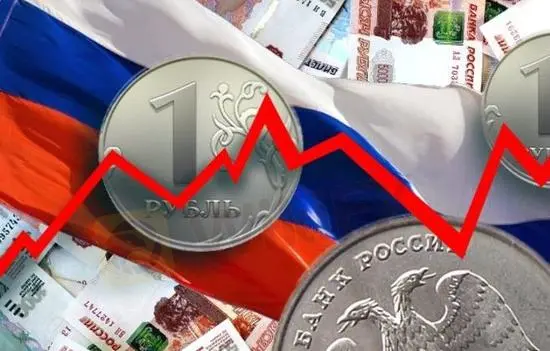简体中文
繁體中文
English
Pусский
日本語
ภาษาไทย
Tiếng Việt
Bahasa Indonesia
Español
हिन्दी
Filippiiniläinen
Français
Deutsch
Português
Türkçe
한국어
العربية
Russia seen raising key rate by 100 bps to 9.5% on Friday
Abstract:Twenty-seven of 33 analysts and economists polled by Reuters predicted that Russia will raise the key rate by 100 basis points to 9.50% on Friday, its highest since March 2017.

The Russian central bank is expected to raise its key interest rate by a hefty 100 basis points for the second time in a row as it struggles to rein in inflation that could accelerate from the recent rouble drop, a Reuters poll suggested on Monday.
The central bank hiked rates seven times in 2021 but failed to rein in inflation, its main area of responsibility, which hit a six-year high, denting living standards and spurring President Vladimir Putin to call for pre-emptive steps.
Twenty-seven of 33 analysts and economists polled by Reuters predicted that Russia will raise the key rate by 100 basis points to 9.50% on Friday, its highest since March 2017.
“The main reason for such a decision is the lack of improvement in inflationary readings,” said Igor Rapokhin, chief debt strategist at SberCIB.
Such a hike would take the key rate above the annual consumer inflation rate of 8.82% seen in late January, a level far above the 4% target and the highest since early 2016.
The central bank has repeatedly promised to make sure annual inflation will slow to 4.0-4.5% by year-end, a task which is looking increasingly difficult to fulfil.
Adding to inflationary pressure is the recent rouble drop to a near 15-month low of 80.4125 to the dollar in late January, when Western powers threatened to impose more sanctions if Russia invaded Ukraine. The Kremlin denies having any such plan.
The market is keeping an eye on January inflation data that is due on Wednesday and could offer more clues to the outcome of the Feb. 11 rate-setting meeting.
Four polled experts predicted a rate hike to 9.25%, while two economists expected an increase to 9.00% on Friday.
“If the reading is above 1.1% month-on-month, I will increase my February CBR call to 100 basis points,” said Tatiana Orlova, an economist from Oxford Economics who recently changed her call to a 75 from 50 basis point hike.
Higher rates help tame inflation by pushing up lending costs and increasing the appeal of bank deposits, while also propping up the rouble.
Russia could further raise the key rate to 10% in March and embark on monetary easing in the second half of 2022, market experts said in a separate poll in late January.
For more Forex news, please download WikiFX- the Global Forex Regulatory Inquiry APP.
Disclaimer:
The views in this article only represent the author's personal views, and do not constitute investment advice on this platform. This platform does not guarantee the accuracy, completeness and timeliness of the information in the article, and will not be liable for any loss caused by the use of or reliance on the information in the article.
Read more

This Economic Indicator Sparks Speculation of a Japan Rate Hike!
The latest data shows that Japan’s base wages in November rose by 2.7% year-on-year, marking the largest increase in 32 years, fueling speculation about a potential BOJ rate hike, but Governor Kazuo Ueda’s dovish remarks in December have shifted market expectations toward a potential delay in policy adjustments.

Rising U.S. Corporate Bankruptcies Deepen Economic Concerns
In 2024, 686 U.S. companies filed for bankruptcy, marking the highest number since 2010.

Turkey Resumes Rate Cuts Amid Easing Inflation
Turkey’s inflation has eased, prompting the central bank to resume interest rate cuts. Striking a balance between economic recovery and inflation control has become a critical focus. However, significant challenges lie ahead, as Turkey continues to navigate complex economic conditions.

New Year, New Surge: Will Oil Prices Keep Rising?
As of the writing of this article (January 2), oil prices stand at $71.88 per barrel. Investors need to continue monitoring whether the supply and demand dynamics will continue to push prices further up.
WikiFX Broker
Latest News
90 Days, Rs.1800 Cr. Saved! MHA Reveals
The Yuan’s Struggle: How China Plans to Protect Its Economy
LiteForex Celebrates Its 20th Anniversary with a $1,000,000 Challenge
Misleading Bond Sales Practices: BMO Capital Markets Fined Again by SEC
Italy’s Largest Bank Intesa Sanpaolo Enters Cryptocurrency Market
What Every Trader Must Know in a Turbulent Market
Forex Price Trend Prediction! | Come be a New Year Price Winner!
HFM NY Special Offer!
How a Promised RM1.4 Million Return Turned into a Costly Scam
How Long Can the Dollar Remain Strong?
Currency Calculator







